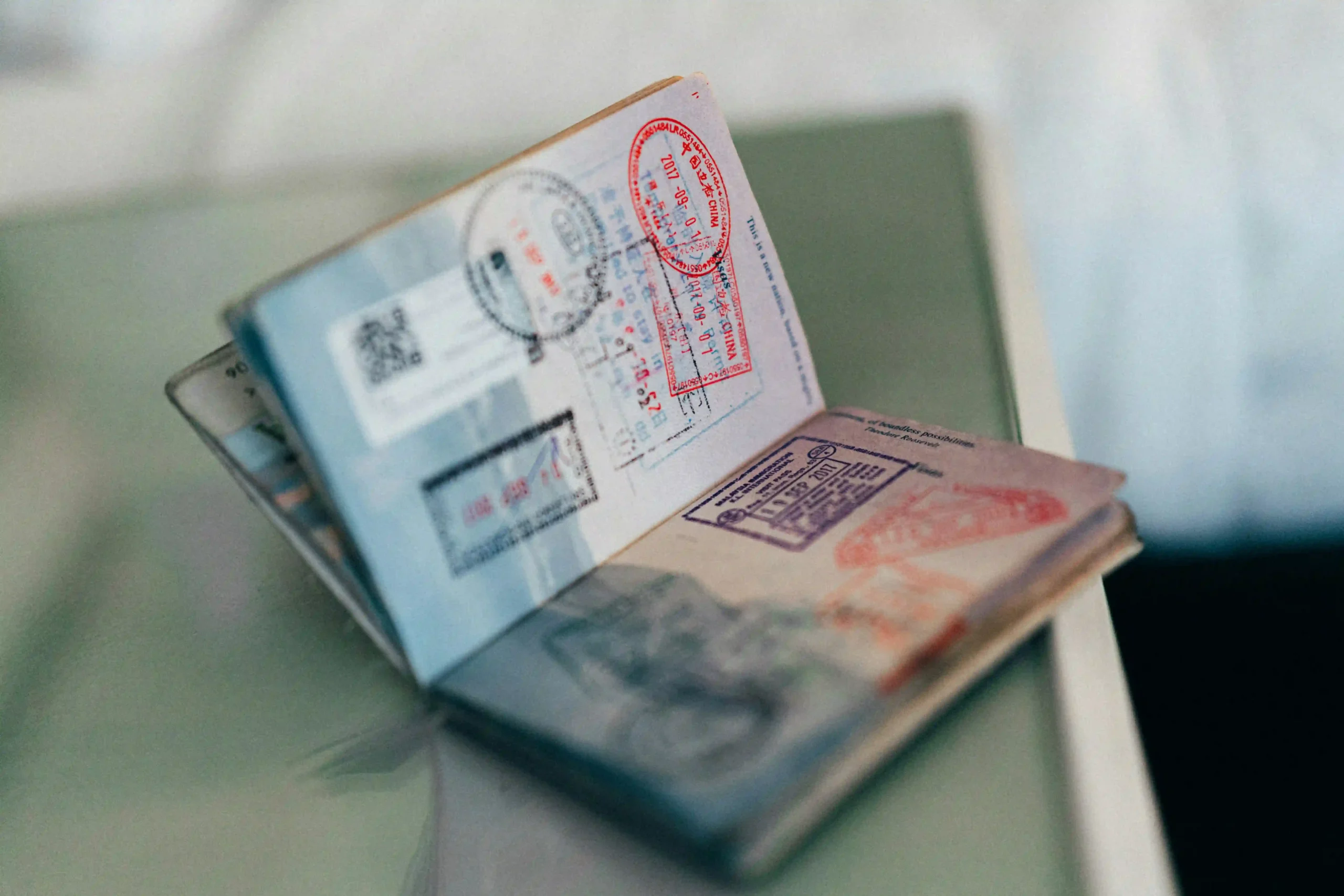
Several easiest work visa countries in Europe and Asia now feature streamlined work permit requirements and fast approval times. Many expats choose destinations with transparent visa application time and efficient digital systems.
📌 This article is part of the relocation guide 2025: check also Work Permit Requirements for Digital Nomads in Europe.
Contents

1. Germany
Germany remains one of the easiest work visa countries in Europe, especially for professionals in engineering, IT, and healthcare. Its EU Blue Card program allows skilled workers to live and work in Germany with fast-track residency options.
🟢 Benefits / Достоинства:
- Fast-track visa for university-educated professionals with job offers
- Blue Card leads to EU-wide permanent residence in as little as 33 months
- Transparent work permit requirements across all federal states
- Highly skilled workers are prioritized under shortage occupation lists
- Easy family reunification with spouse and children
⚠️ Limitations / Недостатки:
- Requires formal job contract with minimum salary threshold (€45,300/year or lower for shortage roles)
- Bureaucracy can vary by region (e.g., Berlin vs. Munich)
- German language may be required for some public sector or client-facing roles
📌 Example experience:
Used Blue Card to move to Berlin as a software engineer. The visa application time was 6 weeks. Documents were processed digitally via consulate and local Ausländerbehörde.
Compared to Germany’s structured route, Canada offers more flexibility through a points-based system.
2. Canada
Canada continues to attract professionals globally through its Express Entry and Provincial Nominee Program (PNP). These systems favor skilled applicants and rank it among the easiest work visa countries for those seeking long-term residency options.
🟢 Advantages / Выигрышные стороны:
- Express Entry allows high-scoring candidates to receive invites within weeks
- Offers multiple programs: FSW, PNP, CEC, targeting diverse skill profiles
- Work permit often leads to permanent residency and later citizenship
- English language and transparent point system improve fairness
- Extensive immigration support through IRCC and local programs
⚠️ Drawbacks / Ограничения:
- Competitive CRS scoring—not guaranteed without high education/experience
- Medical and background checks can slow down processing
- Expensive in terms of application fees and proof of funds
📌 Example scenario:
Used PNP for Ontario tech sector with a job offer. Invitation received after 3 months. Applied via Express Entry with total visa application time of 7.5 months from profile creation to landing visa.
For faster digital-friendly processing, Estonia presents a low-barrier alternative.
3. Estonia
Estonia offers one of the most digital-friendly work visa 2025 Europe systems, especially for freelancers and remote professionals. With e‑Residency and digital nomad visa options, the process is streamlined, remote, and efficient.
🟢 Benefits / Достоинства:
- Fully online visa application process—documents submitted digitally
- Tailored Digital Nomad Visa for remote contractors and employees
- No local sponsor required—just proof of international income
- Low government fees and quick decision-making (avg. 15–30 days)
- Compatible with EU tax and business registration systems
⚠️ Limitations / Ограничения:
- Visa is short-term (up to 12 months, renewable once)
- Does not lead to permanent residency or path to citizenship
- Must pay taxes in Estonia if residing more than 183 days
📌 Example experience:
Used Digital Nomad Visa to base freelance consulting in Tallinn. Income proof and client contracts were accepted. Entire application and approval took 3 weeks from start to finish—fully remote.
If residency and long-term prospects are key, New Zealand’s structured permits offer more permanence.
4. New Zealand
New Zealand ranks high in country work visa ranking due to its transparent point-based Skilled Migrant Category and employer-specific visas for in-demand fields like healthcare, engineering, and construction.
🟢 Advantages / Достоинства:
- Job-specific permits for roles on official shortage lists
- Option for residence from work after two years in the role
- Applications accepted online through Immigration NZ
- Family sponsorship included on most skilled permits
- English-speaking environment and strong expat support
⚠️ Drawbacks / Недостатки:
- Must have confirmed job offer before applying
- Qualification recognition can delay processing
- Regional relocation may be required based on employer location
📌 Example scenario:
Used Accredited Employer Work Visa for construction role in Wellington. The visa application time was 5 weeks, followed by a 1-year contract that can convert to residence.
Want a combination of lifestyle, EU access, and soft climate? Portugal may be the best fit.
5. Portugal
Portugal remains one of the easiest work visa countries in Europe, with special routes for tech workers, startups, and digital nomads. Programs are designed for both professionals and investors.
🟢 Advantages / Достоинства:
- Tech Visa supports employment in certified innovation firms
- D7 visa covers freelancers with passive income or remote work
- Residency leads to citizenship after 5 years
- Low cost of living and warm climate attract expats
- Family reunification processed quickly
⚠️ Limitations / Недостатки:
- Golden Visa requires significant real estate or fund investment
- Requires address and Portuguese NIF number at application stage
- Bureaucracy can be slow in certain SEF offices
📌 Example experience:
Used the D7 Visa to base remote UX design work in Lisbon. NIF, local lease, and proof of international contracts required. Visa approved in 6 weeks; residency card received within 2 months.
📊 Compare all five countries:
| Country | Processing Speed | Remote Work Friendly | Leads to Residency | Requires Job Offer | Language Barrier |
|---|---|---|---|---|---|
| Germany | 4–8 weeks | Moderate | Yes | Yes | Possibly |
| Canada | 6–12 months | Limited | Yes | Not always | No |
| Estonia | 2–4 weeks | Excellent | No | No | No |
| New Zealand | 3–6 months | Limited | Yes | Yes | No |
| Portugal | 2–4 months | High | Yes | Optional | Minimal |
📊 Explore which country suits your profession and lifestyle—without rushing into applications blindly.
Summary
- Germany (Blue Card): Ideal for high-skill EU job seekers, 4–8 weeks processing.
- Canada (Express Entry): Points-based express system, family-friendly, 6–12 months.
- Estonia (e‑Residency): Best for remote workers, fast 2–4 weeks digital process.
- New Zealand: Shortage occupations prioritized; clear requirements, takes ~3–6 months.
- Portugal (Tech/Golden Visa): Fast for tech and investors, family included, 2–4 months.
FAQ
Is Germany really one of the easiest work visa countries?
Germany’s EU Blue Card offers a streamlined process for skilled workers with job offers. Processing usually takes 4–8 weeks, and the program leads to permanent residency—no fluff, clear facts.
How fast is Canada’s work visa via Express Entry?
Express Entry can finalize within 6 months from submission if you score enough points. Provincial Nominee Programs may extend that timeline slightly but boost chances significantly.
Can I get a digital nomad permit in Estonia?
Yes. Estonia’s digital nomad visa allows remote work with only online application. Average approval is 2–4 weeks, perfect for freelancers and digital professionals.
Does New Zealand allow family members on a work visa?
New Zealand’s skilled work permits often include partners and dependent children, though additional documents (e.g., medical, police checks) are required for them.
Are Portugal’s work visa programs expensive?
Portugal’s tech visa has modest administrative fees; Golden Visa has higher investments. Both include family rights and lead to residency, so costs reflect long-term benefits.
📚 Read also: Work Permit Requirements for Digital Nomads in Europe 2025 – detailed guide for remote professionals.
Sources











